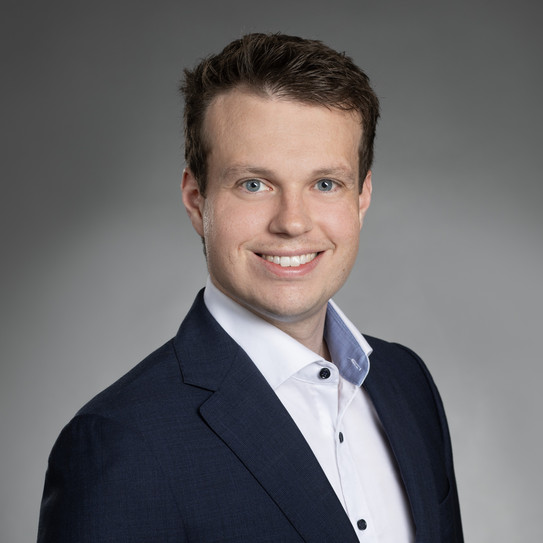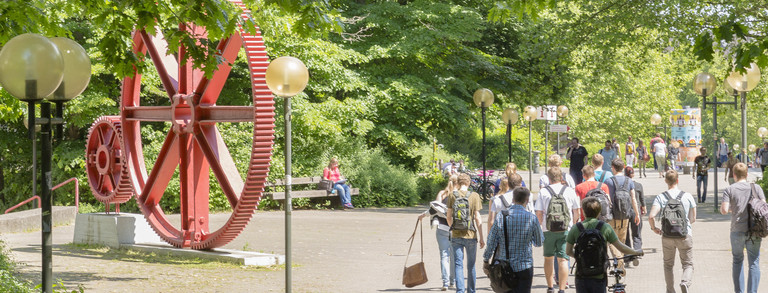Dr. Mirko Alexander Jakubzik
Kontakt
Technische Universität Dortmund
Fakultät Statistik
Lehrstuhl für Wirtschafts- und Sozialstatistik
CDI-Gebäude, Raum 3
44221 Dortmund
E-Mail: mirko.jakubzik@tu-dortmund.de

- seit Februar 2024: Postdoc und wissenschaftlicher Mitarbeiter
- 2017-2024: Promotion an der TU Dortmund, Lehrstuhl Statistik mit Anwendungen im Bereich der Ingenieurwissenschaften
- 2014-2017: M.Sc. Mathematik (Nebenfach Statistik) an der TU Dortmund
- 2011-2014: B.Sc. Mathematik (Nebenfach Statistik) an der TU Dortmund
- Robuste Statistik (insb. Daten- und Regressionstiefe, K-Vorzeichentiefe, Modellanpassung und -kontamination)
- Intensitätsbasierte Modellierung und Inferenz (insb. Lastumverteilung & Schadensakkumulation, Minimum-Distanz-Schätzung, zufällige Zeittransformation)
- Nicht-und semiparametrische Verfahren
- Überlebenszeitanalyse
- Versuchsplanung
- Leckey, K., Jakubzik, M., und Müller, C.H. (2023). On the consistency of K-sign depth tests. Econometrics and Statistics. doi.
- Abbas, S., Fried, R., Heinrich, J., Horn, M., Jakubzik, M., Kohlenbach, J., Maurer, R., Michels, A. und Müller, C.H. (2019). Detection of anomalous sequences in crack data of a bridge monitoring. In: Applications in Statistical Computing - From Music Data Analysis to Industrial Quality Improvement. Eds. K. Ickstadt, H. Trautmann, G. Szepannek, N. Bauer, K. Lübke, M. Vichi, Springer, 251-269.
Dissertation:
- Jakubzik, M. (2023). Statistical inference for intensity-based load sharing models with damage accumulation. doi.
- Sign Depth for Intensity-Based Point Process Models. Bernoulli-IMS Worldcongress 2024. Bochum, Germany (08/2024).
- Application of Sign Depth to Point Process Models. ICORS 2024. Fairfax, VA, USA (07/2024).
- Application of Sign Depth to Point Process Models. ENBIS Spring Meeting 2024. Dortmund, Germany (05/2024).
- Consistency of the 3-Sign Depth Test for Intensity-Based Point Process Models. Statistische Woche 2023. Dortmund, Germany (09/23).
- Vorzeichen-Tiefen: Anpassungsmaße in der Regressionsanalyse. SFB 823-Workshop "Strukturbruch". Bochum, Germany (10/19). Gemeinsamer Vortrag mit Dennis Malcherczyk.
- Semi-Parametric and Robust Estimation in Intensity-Based Models. Statistische Woche 2019. Trier, Germany (09/19).
- Statistical Inference for Intensity-Based Load Sharing Models with Damage Accumulation. 15. Doktorandentreff Stochastik. Darmstadt, Germany (07/19).
- A Minimum Distance Estimator for Intensity-based Load Sharing Models with Damage Accumulation. 11th International Conference on Mathematical Methods in
Reliability. Hongkong (06/19). - Applications of a Minimum Distance Estimator for Self-Exciting Counting Processes. DAGStat Conference 2019. Munich, Germany (03/19).
- Applications of a minimum distance estimator for specific self-exciting point processes. Statistische Woche 2018. Linz, Austria (09/18).
- Applications of a minimum distance estimator for specific self-exciting point processes. 14. Doktorandentreff Stochastik. Essen, Germany (08/18).
- Applications of a minimum distance estimator for specific self-exciting point processes. German Probability and Statistics Days 2018. Freiburg, Germany (03/18).
- Asymptotic properties of a minimum distance estimator for self-exciting point processes. Nachwuchsworkshop der DStatG, Statistische Woche 2017. Rostock, Germany (09/17).
- Schätzen und Testen (WiSe 22/23 & WiSe 24/25)
- Statistical Methods for Counting Processes (SoSe 24)
- Wahrscheinlichkeitstheorie (WiSe 18/19 & WiSe 19/20 & WiSe 23/24)
- Nichtparametrik und robuste Statistik (SoSe 23)
- Fortgeschrittene Versuchsplanung (SoSe 17 & SoSe 19 & SoSe 21 & SoSe 23)
- Fallstudien 2 (SoSe 17 & WiSe 19/20 & WiSe 22/23)
- Elementare Wahrscheinlichkeitsrechnung (SoSe 20 & SoSe 22)
- Grundlagen der Versuchsplanung (SoSe 20 & SoSe 22)
- Vektor- und Matrizenrechnung (WiSe 21/22)
- Statistik der Materialermüdung & Zuverlässigkeit (WiSe 17/18 & WiSe 19/20 & WiSe 21/22)
- Optimalität bei Schätzern und Tests (SoSe 21)
- Schätzen und Testen 1 (WiSe 20/21)
- Fallstudien 1 (SoSe 19)
- Statistik 2 (SoSe 18)





